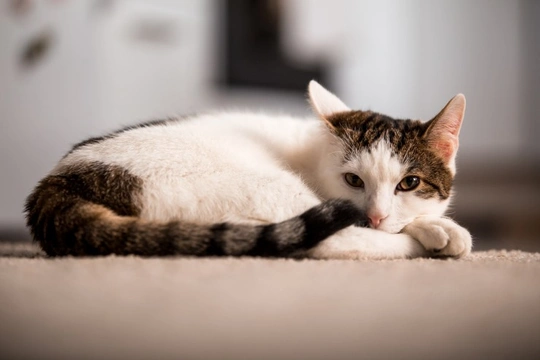
Seven top tips for removing cat urine from your home effectively and permanently
Cat urine is one of the most pungent and unpleasant of all smells, even when compared to the urine of other species. If you are unlucky enough to have a cat that has sprayed or urinated in your home, removing the smell and potential staining and damage can be very challenging, and it is also really important to get it right, because failing to do so can lead to a vicious circle where your cat will continue to mark or urinate out of habit, or due to their own smell!
In this article, we will share seven top tips on how to remove cat urine-and its smell-from your home effectively and permanently, and hopefully, help to prevent your cat from urinating or spraying inside again in future! Read on to learn more.
Take care over air fresheners and other scented products
Cats tend to find strong smells of all sorts unpalatable, and may even find pervasive scents in the atmosphere of their homes upsetting, or threatening. If you use things like plug-in air fresheners or air fresheners that automatically diffuse a scent to keep your room smelling sweet, your cat may take a strong dislike to them or even feel that they are a threat to their territory, and so, they may be apt to scent mark or pee in the house as a result.
This can become something of a vicious circle as you will likely be even keener to use air fresheners to cover any lingering scent of pee-so give some thought to perfumes, air fresheners and other scented products, and consider if they might actually be making the problem worse.
Absorb the pee; don’t rub it in!
When it comes to cleaning up a puddle of pee or the results of spray, getting up as much of the liquid as possible will limit the damage to whatever it was on, and make removing the smell properly and thoroughly easier. When it comes to soft furnishings and carpets, use plenty of absorbent kitchen towel or something else disposable to blot the wetness up, rather than rubbing it, which can actually make the fabrics absorb more, and also, help to spread the scent.
Don’t use bleach
When cleaning up something unpalatable or dirty, bleach is the go-to choice for most of us-but this is definitely not the best choice for cleaning up cat pee! Bleach actually reacts to chemical elements in the urine to produce ammonia, which not only has a strong smell of its own, but is commonly mistaken by cats as the scent of another cat’s urine, and so, can make the cycle worse. Steer clear of strong chemicals, anything containing ammonia, and anything that serves to mask the scent of the urine with something else that smells strongly.
Use an Enzymatic cleaner
In order to neutralise the smell of cat pee and work it out of fabrics and soft furnishings, you will need to use an enzymatic cleaner that essentially reacts with the chemicals in the urine to neutralise it, instead of masking the smell. There are several cleaning products designed specifically to remove the smell and trace of urine from fabrics that can be bought in most pet stores, and many unscented cleaning products are designed to have a biological effect to really remove odours instead of just covering them.
Baking soda can help to blot up and neutralise urine, and once you have done this, use an enzymatic cleaner to thoroughly wash the area, getting it completely wet and rinsing it several times-just spraying on a couple of squirts onto it is not enough!
Clean the underlay as well as the carpet
If your cat has sprayed or urinated on the carpet, you will likely need to lift the carpet and get right down to the underlay and treat this too in order to remove the smell.
If you have thoroughly cleaned and shampooed your carpets but the lingering ghost of cat pee remains, the underlay is likely to be the culprit!
Find mystery patches of pee with UV light
If your nose is telling you that your cat has peed somewhere but your eyes just cannot spot it in order to deal with it, utilise some lateral thinking-UV lighting, as seen on shows like CSI, shows up biological waste like a beacon, so pick up a cheap UV light from somewhere like Ebay, turn the lights off, and go on your own household search for the scene of the crime!
Identify and address the underlying problem
Finally, finding out why your cat has peed or sprayed in the house and addressing it is just as important as cleaning up after your cat-if you can work out what the problem is, you can likely help to prevent it happening again.
Get your cat checked out by the vet in case of any physical problems, and consider if there might be a new cat in the area that is upsetting your cat and making them feel insecure. If you have a male cat that is unneutered, having them castrated may well solve the problem-and many others-too!



